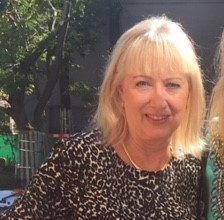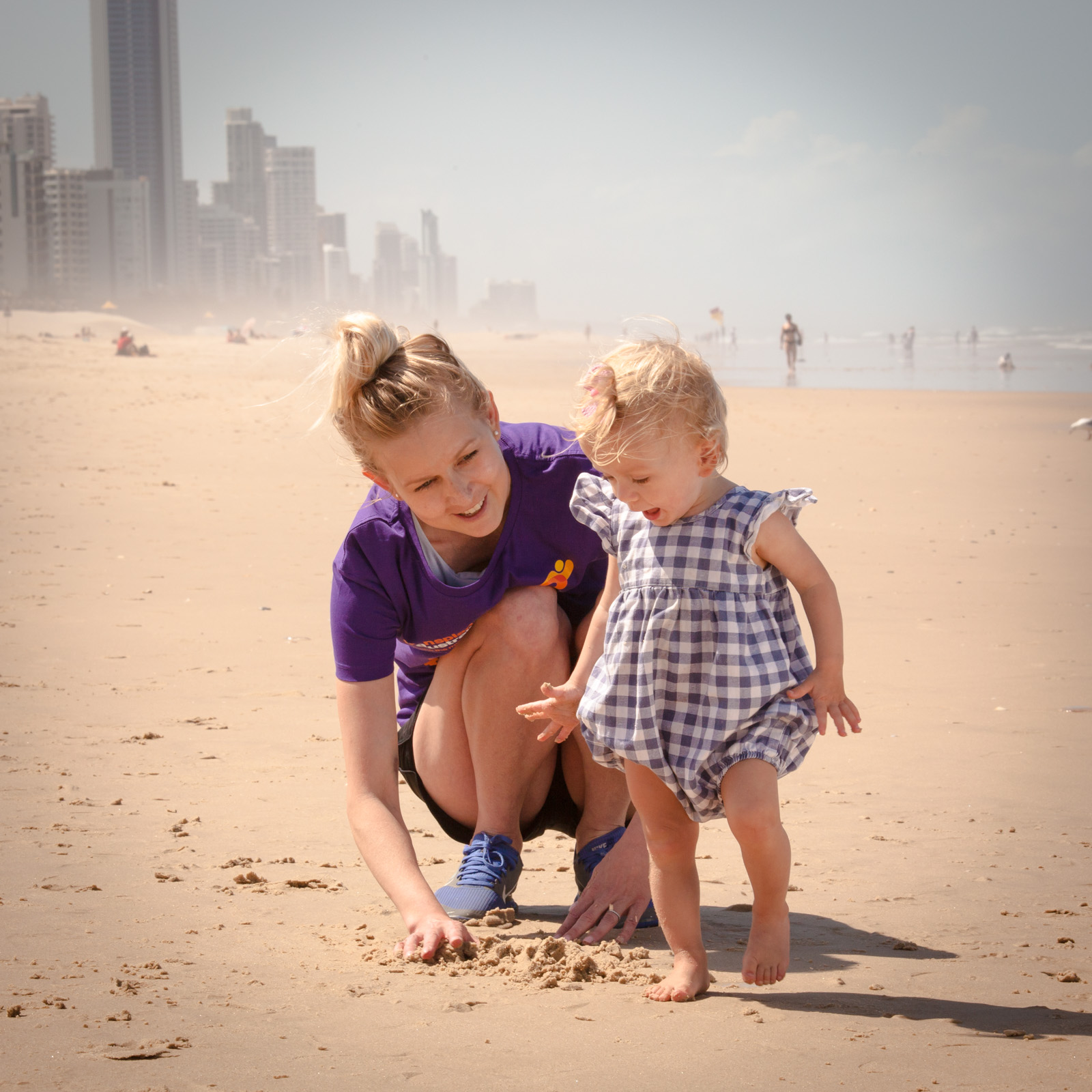Having a transplant is transformative. After being unwell, you now have the chance to live life again to the fullest. You may feel ready to start socialising and commencing work. As you recover, remember to take things slowly at first.

Typically, recovery can take at least 6 weeks. After being away from your social life and work for an extended period, you may need to gradually get back to your former job, or look for a change in career/work arrangements to suit your health requirements.
The prospect of reengaging at the workplace can be daunting. Ensure you have a note from your transplant doctor/GP to explain your illness and recommend steps the organisation can take to help you ease into the workplace; e.g. the implementation of flexible hours.
Work with your manager as well as your physician to understand the conditions under which you can return to work, and have a dialogue with your employer about any concerns.
New work arrangements might include:

Monty Summers – Bone marrow recipient
Don’t be afraid to speak up and discuss apprehensions, and even ask for the odd day off if required. The more your employer understands your condition and how it affects you, the more beneficial it will be for you in the long run.
T |
Temporary workRequest for temporary/part-time work to ease into the work environment |
R |
RecordsCarry records like doctors’ certificates and recommendations |
A |
AssessmentGet assessed by your doctor for the level of physical activity you can resume |
N |
NegotiateNegotiate for time off to attend appointments |
S |
Short hoursRequest for short hours as a start |
I |
InfectionsStay away from infections. Carry hand sanitisers and ensure your work environment is clean |
T |
TransitionEnquire about transition programs as you prepare to resume work duties |
Explaining a little about your circumstances will help employers understand the gaps in your resume. Although you are not obliged to declare your circumstances/health issues, it may help to script it out and practice what you choose to disclose.
There are many information sites that provide advice on writing resumes and offer templates. While listing skills, include skills you may have acquired while unwell and away from work. For example, they could be soft skills like managing your family or even organising everyone’s diary.
For information on a range of employment services and work available for job seekers visit:
To see information at the state level, see below:
QLD: Queensland Government – Employment and jobs
NSW: NSW Government – Finding a job or Ability Options
NT: Work in the Northern Territory
VIC: Government of Victoria – Jobs or Victorian skills gateway

“Since returning to work my management and HR Team have been outstanding, providing me with facilities within the business along with change-of-hours to accommodate my strength, and getting the best out of me just 6 months post-transplant. Flexible hours, time off for hospital visits and providing counselling services if needed – I couldn’t have asked for a better transition, even though it’s been hard at times. I am very grateful for their support” – Lisa Chaney, kidney recipient.
You may like to maintain privacy and are under no legal obligation to disclose your circumstances to a new employer if your health issues do not impact your performance. Some of the reasons for non-disclosure may include:
However, if your health condition changes and it starts affecting your job, you might decide to disclose your health situation to your employer because:
Click here for more on your rights as an employee with an illness.

“I feel I can do anything… I work part-time and have not felt the need to tell anyone about my transplant” – Michelle Madden, kidney recipient.


Voluntary work, whether helping at schools or a charity will help you adapt to a routine and is a great way to get work experience. Look for opportunities at places like Volunteering Australia, Probono Australia and Go Volunteer.
Networking may be one way to help you get a break. If you have contacts in the sector you’d like to work in, approach them for advice and put a word out to family and friends.
Going back to work and interacting with coworkers can be complicated. Your coworkers may have limited knowledge about transplantation; think that you’re still gravely ill or treat you like a fragile person.
Open discussions with coworkers would help educate them and put everyone at ease.
Types of unreasonable behaviour may include:
If you feel unfairly treated at work, talk to a healthcare worker or transplant unit. Do not let any ill-informed notions hold you back.
There are national and state laws on equal employment opportunity and anti-discrimination at the workplace that can protect you.
Food
It is great to be back at school. Just remember food safety as you purchase from the canteen (avoid cold sausage rolls, cold pies and deli meats). If you are taking a food tech class, a letter to the teacher at the beginning of term may equip them in their preparations for classes. It might be helpful to print the information off our Food Safety page or send a link to the teacher. It won’t be so hard for your teacher to work around these simple precautions. For more information visit Food Safety.
Sport
It may be helpful for your Specialist or Physiotherapist to write a letter for the P.E teacher stating what it is safe for you to participate in. They will include whether contact sports are okay for you or not. Most sports teachers won’t know that it may take you a little longer to warm up if you are post heart transplant, so be sure to let them know. You could also get your Physiotherapist to include that in the letter. Don’t forget sun safety when playing sport outside and remember to keep yourself hydrated.
School Camp
Going off to school camp post transplant can be a big thing for both child and parent. Don’t forget to make clear to your school the importance of medications. It may be wise to write a letter or meet with a teacher in advance to assure them you can participate in as much as possible (they may be nervous too), whilst still considering safety around food, sun, medications and when to notify a parent.
Note to Parents: For example: if anyone at camp becomes unwell, a phone call home can give you the chance to reiterate the need for your child to not be left in a cabin with someone sick or return home if you would prefer. Even more importantly, inform the school that if your child becomes even mildly unwell, it is important to notify you. It is common for kids to face some separation anxiety and fears post transplant. They have been through a lot. Perhaps you might like to ask the teacher if your child can have permission in advance to call home if they wish or to reassure you when they have taken their medications. School camps can be a bonding and joy-filled experience. As much as letting go may be extra difficult after all your child has been through, remember allowing your child to go to camps may grow them, help them reintegrate socially and bring them joy for years to come.

Double lung recipient Kate Willis with daughter Adeline.
While you were unwell, it might have been too hard to maintain social connections.
Little steps go a long way
When picking up a social life again, don’t put pressure on yourself or overdo it. Plan things to look forward to, and set easy goals like having a night out once a week.
Stay connected with friends, even if you’re not able to meet face-to-face right away, through Skype or social media.
When you feel up to it, you could try a new hobby, activity or even volunteering. However, make sure to stay away from crowded places like shopping malls and pubs, where the chances of picking up infections are high, for the first 3 months or until your transplant doctor advises.
Returning home will mean an opportunity to be with friends again and join in birthday parties and socialising. It may be helpful to:
The different emotions at various stages of your recovery can lead to feelings of isolation and stress. Take the time to look after yourself. Talk to your GP, a healthcare professional or a trusted friend about your feelings, or learn stress-management techniques like meditation, mindfulness or breathing exercises.
Check out Beyond Blue, headspace or health direct for more. If you continue to experience high levels of stress speak to your GP, or find a Psychologist Service by calling 1800 333 497.
Transplant Australia has a large membership and provides great opportunities to socialise through sporting and social activities organised by each state. To find out more about what’s available in your state click here. Every two years Transplant Australia organises the Australian Transplant Games encouraging fitness and friendships with those in the transplant community. Meeting others who understand what it’s like to go through the unique experience of transplantation can be very positive for transplant recipients.
Returning to your extra-curricular events, or beginning new activities (like dance classes, sports team, kids club, gymnastics or youth group) can be an exciting new chapter. However, it is also natural for you (or your child) to have concerns around keeping safe from germs and how to help others understand there are extra things to consider. If the activity you are returning to or commencing has forms to fill out, you can simply write in the medical history that you are ‘post-transplant’ or ‘immune suppressed’ with a little description around when to notify you (for example if the child has a temperature, vomiting or becomes unwell). If a form has an option for dietary requirements, you could write that your child can’t eat off share platters, eat soft cheeses, deli-meats or re-heated food.
Some tips for keeping safe:
Parents, as much as it may be difficult, allow your child to participate in as much as possible and enjoy their new life free from a failing organ. Be kind to yourself and practise self-care as feeling at ease after a long time of illness may take time. Encourage your child to enjoy their new life and participate in whatever they are able. Wrapping them in cotton wool is tempting, but allowing them to enjoy as much as they can will be better for them long term. If in doubt about anything, ask your child’s team.
Transplant Australia gratefully acknowledges the contribution of the following experts in developing and reviewing this material:
Carer Support Officer
Clinical Governance Unit
The Children’s Hospital at Westmead
Area Renal Social Worker
Western Renal Service
WSLHD & NBMLHD
Recent Comments